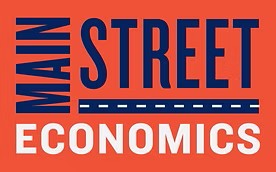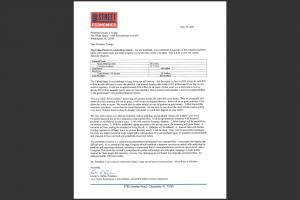Main Street Economics Calls Passage of the ‘Big Beautiful Bill’ a Fiscal Mirage

Economic Education for the American Public

Leslie A. Rubin, Founder and President, Main Street Economics
The So Called Big Beautiful Bill Isn’t Actually 'Beautiful' - Plenty of Positives—But None Are Paid For
“The so-called big beautiful bill isn’t so beautiful,” said Les Rubin, founder and president of Main Street Economics. “Sure, there are plenty of positives for families and businesses, but very little of it is paid for. That’s not economic leadership, that’s just more political short-termism.”
The $3.8 trillion bill extends the 2017 Trump-era tax cuts, expands the child tax credit, offers tax breaks on overtime and tips, raises the SALT deduction cap to $40,000, and creates new “MAGA” savings accounts for children.
Yet only about one-third of the bill’s cost is offset by spending reductions, leaving roughly $3 trillion (and up to $5 trillion) to be added to the national debt over the next decade. According to Rubin, this is precisely the kind of policymaking that keeps America hurtling toward a full-blown fiscal reckoning.
“We’re watching every effort to fix our long-term entitlement issues get thwarted, again, by special interests looking out for their voters, not the country,” Rubin said. “There is no appetite in Washington to have the hard conversations about Medicare, Medicaid, and Social Security. And every time Congress kicks the can, the cost of action gets bigger, and the politics get harder.”
Rubin acknowledged that there are strong elements in the bill that will help many Americans and will foster growth.
“We are not against tax relief. We are in favor of growth,” Rubin said. “But what we are absolutely against is pretending we can cut taxes, keep spending, and somehow not add to the debt. It’s magical thinking.”
Main Street Economics has spent years urging lawmakers to confront the root drivers of federal debt and enact real reform, particularly as the Social Security and Medicare trust funds inch closer to insolvency.
The group’s recent campaigns, including national op-eds and video series, have warned that ballooning deficits risk crowding out investment, driving up interest rates, and burdening future generations with an unsustainable fiscal inheritance.
“We keep handing out goodies today while sending the invoice to our children tomorrow,” Rubin said. “That’s not conservative, progressive, or even moderate, it’s just irresponsible.”
Rubin is calling for a statutory bipartisan fiscal commission to take an honest look at the country’s revenue and spending structure, and to recommend practical solutions leading to fiscal sanity before we go bankrupt.
“Washington can still turn this around, but the time is running short” he said. “But it will take honesty about the math and courage to say ‘no’ to the loudest lobbies. Until then, Main Street Economics will keep telling the truth.”
###
About Main Street Economics
Main Street Economics was formed to provide Economic Education for the American public. We focus on explaining the fiscal problems we face and basic economics in easy-to-understand language by laymen for laymen without formal education in economics. For more information on Main Street Economics and its initiatives, please visit https://www.mainstreeteconomics.org/ and follow on X at @MainStreetEco.
To schedule an interview with Les Rubin, please contact Dan Rene at 202-329-8357 or dan@danrene.com.
Dan Rene
Dan Rene Communications
+1 202-329-8357
dan@danrene.com
A bold open letter to the President addressing urgent economic issues and offering practical solutions. Key policy recommendations for Americas financial future
Legal Disclaimer:
EIN Presswire provides this news content "as is" without warranty of any kind. We do not accept any responsibility or liability for the accuracy, content, images, videos, licenses, completeness, legality, or reliability of the information contained in this article. If you have any complaints or copyright issues related to this article, kindly contact the author above.

